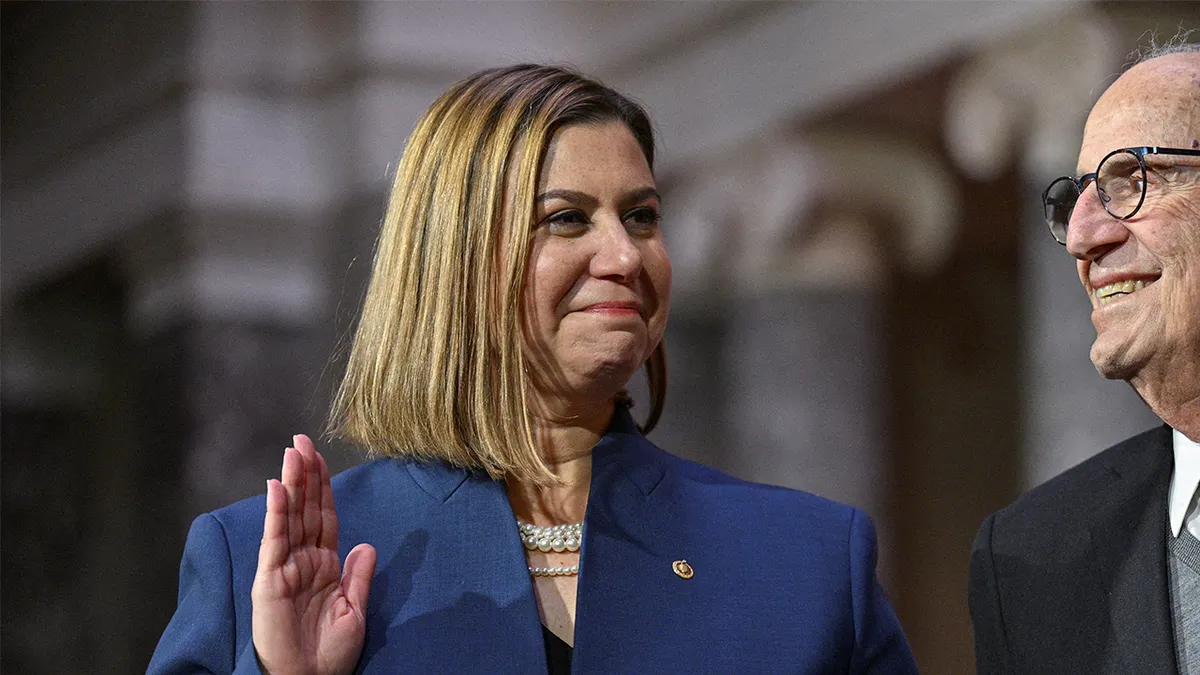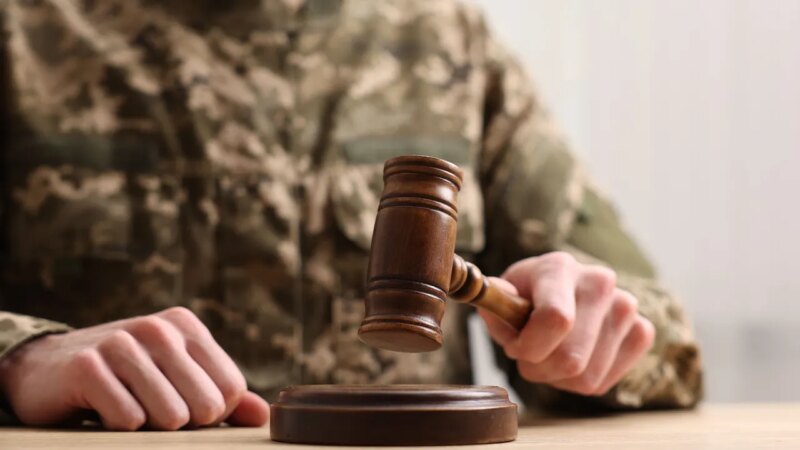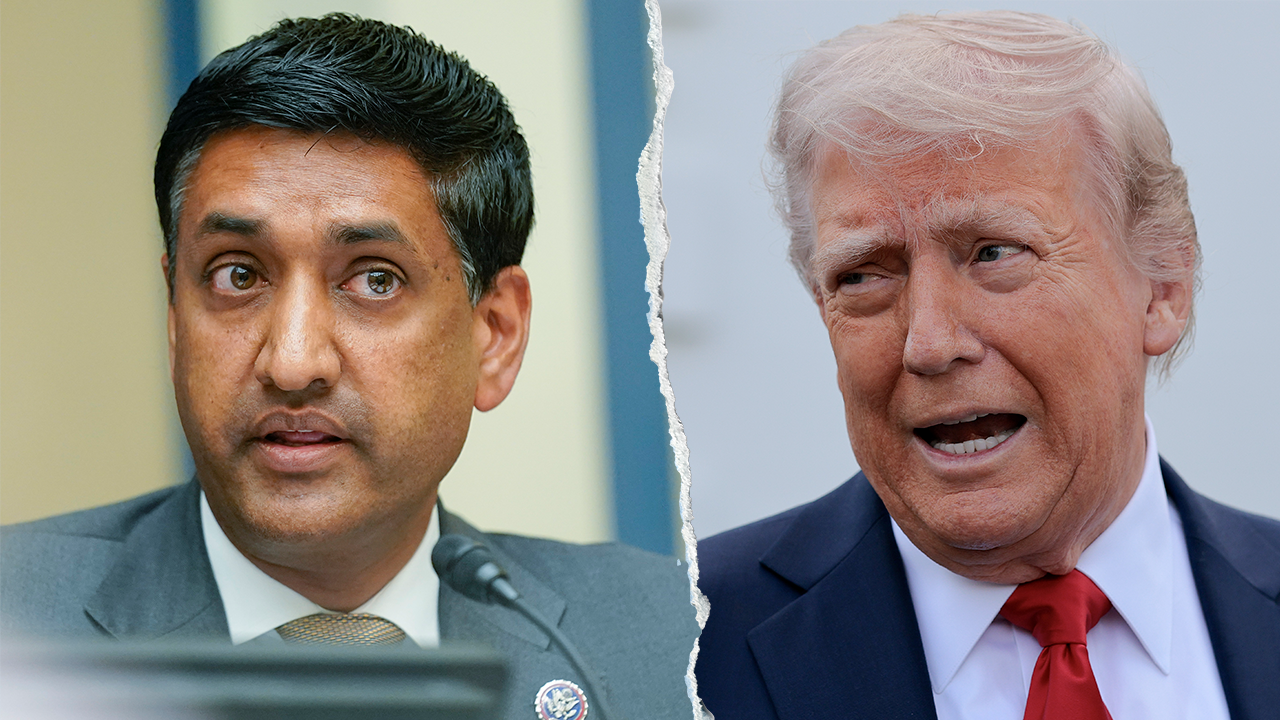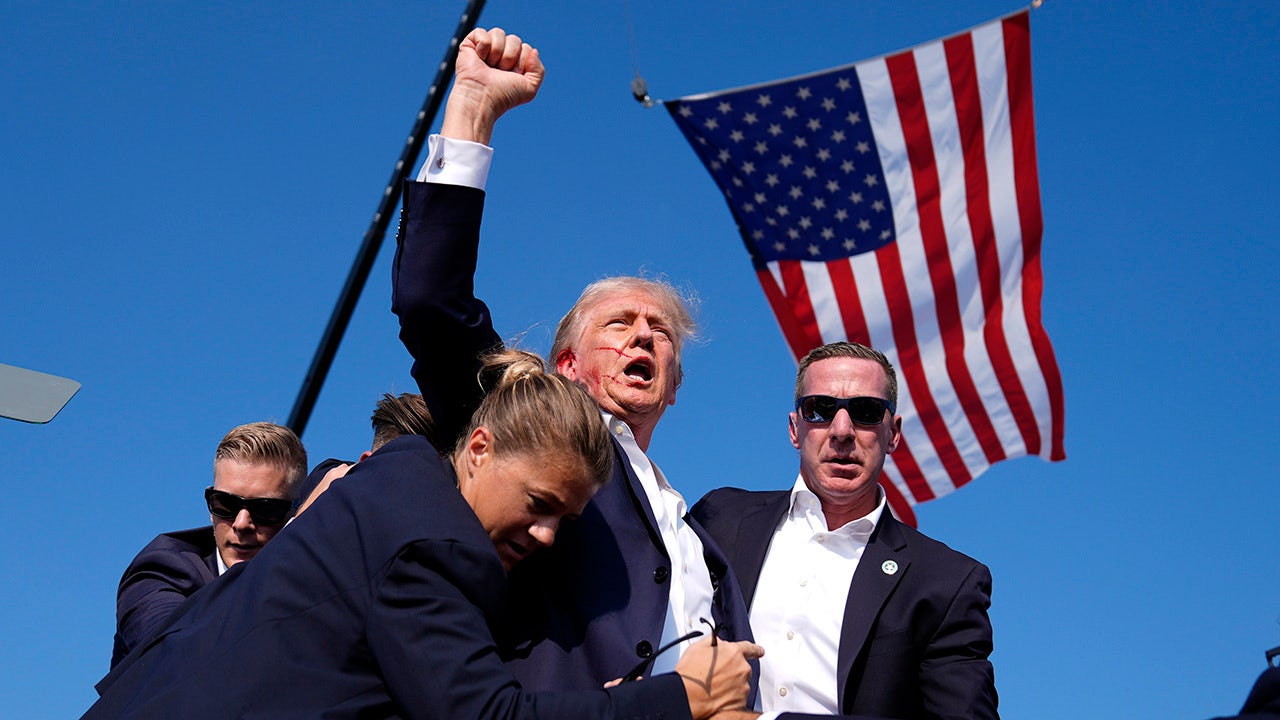NEWYou can now listen to Fox News articles!
President Donald Trump said the Democratic senators’ viral video urging service members to “refuse illegal orders” should be “punishable by death,” intensifying outrage across the political spectrum — and confusion about what that advice could actually mean under federal law.
While the lawmakers behind the video — led by Sen. Elissa Slotkin, D-Mich., and joined by Sens. Mark Kelly, D-Ariz., and several Democratic House veterans and intelligence officers — framed the appeal as a defense of the Constitution, military legal codes make clear that refusing orders, even ones a service member personally believes are unlawful, can carry devastating penalties.
“You can’t expect a sailor to overrule Washington lawyers,” Rachel VanLandingham, a retired Air Force JAG and professor at Southwestern Law School, told Fox News Digital. “That’s why it’s unfair to put the burden on the military instead of on policymakers.”
Under the Uniform Code of Military Justice (UCMJ), a set of laws that governs all members of the U.S. armed forces, obedience to orders is not optional — except in the narrowest of cases where the illegality is “manifest,” or unmistakably obvious. In practice, that distinction means most troops risk punishment if they refuse a command before a court or superior authority has ruled it unlawful.
DANGEROUS WAR GAMES: TELLING SERVICEMEMBERS TO RESIST TRUMP INVITES PURE CHAOS
The UCMJ’s Article 90 states that any service member who “willfully disobeys a lawful command” of a superior officer can face up to five years’ confinement, loss of all pay and allowances, and dishonorable discharge. If the offense occurs in wartime, the punishment can be death or any lesser penalty a court-martial decides.

While the lawmakers behind the video framed the appeal as a defense of the Constitution, military legal codes make clear that refusing orders can still carry devastating penalties. (Reuters)
Article 92 — “Failure to obey order or regulation” — adds that disobeying any lawful order or regulation may also result in a court-martial, with punishments including forfeiture of pay, reduction in rank, and up to two years’ confinement. Those provisions, military lawyers say, are the backbone of discipline and chain of command — the very system the senators’ video appears to challenge.
The law leaves little room for mere good intentions.
“There is no duty to obey an illegal order, but a subordinate who disobeys based on that belief takes immense risk of conviction by court-martial unless he or she can prove the order was truly illegal,” said Texas Tech law professor Geoffrey Corn, director of the university’s Center for Military Law and Policy.
The opposite mistake can be just as destructive. Under Article 77, service members who carry out an illegal order can be punished as “principals,” meaning they share the same criminal liability as the commander who gave the order.
That principle — established after World War II — rejects the idea that “just following orders” is a defense.
GRAHAM DEMANDS DEMOCRATS EXPLAIN ‘REFUSE ILLEGAL ORDERS’ MESSAGE TO TROOPS
If an order violates the Constitution, the law of armed conflict or the rights of U.S. citizens, obedience offers no protection. A service member who follows such a directive could face prosecution for war crimes or dereliction of duty under Article 134, the UCMJ’s broad “general article” covering conduct that discredits the armed forces.
Military law sets an extremely narrow standard for refusing an order: it must be manifestly unlawful — so clearly illegal that “a person of ordinary sense and understanding” would recognize it as a crime on its face. Examples include commands to kill civilians, torture detainees or overthrow the government.
By contrast, orders to deploy troops, enforce federal authority, or carry out presidential directives are presumed lawful unless specifically prohibited by statute or court ruling.
“There’s a presumption that military orders are lawful,” said Victor Hansen, a former Army judge advocate general (JAG) officer and professor at New England Law Boston. “A defense only exists if the order is manifestly unlawful — something clearly criminal, like an order to kill a prisoner of war. That’s where the duty to disobey applies.”
Hansen said service members aren’t in a position to interpret the legality of a president’s decisions on deployments or strikes. “If a soldier came to me after seeing that video, I’d tell them: do nothing different than you’re already doing,” he said. “It’s not your job to second-guess the politics behind a decision to use force.”
The one-minute “Don’t Give Up the Ship” video tells military and intelligence personnel, “You can refuse illegal orders. You must refuse illegal orders.” It never defines which orders qualify — even as the same lawmakers push legislation limiting Trump’s ability to deploy National Guard units or conduct anti-narcoterrorism strikes abroad.
Conservatives quickly accused the group of encouraging insubordination.
War Secretary Pete Hegseth responded on X: “Stage 4 TDS,” referring to what supporters of the president call “Trump derangement syndrome.”
Inside the Pentagon, officials have long cautioned that calls for troops to interpret legality themselves can undermine civilian control of the military — a bedrock of American constitutional order. Current regulations instruct service members to seek immediate legal guidance through their chain of command or the Judge Advocate General’s office before refusing a directive, except in cases of clear criminality.
Retired Air Force Maj. Gen. Steven Lepper, a former deputy JAG, said the Democrats’ message “simply restates existing law” but risks confusion about where accountability truly lies.

Senator Mark Kelly, a former Navy Captain, urged troops to refuse “illegal orders” in the viral video. (Eric Lee/Bloomberg)
“There’s a strong presumption that military orders are lawful,” Lepper said. “That’s as it must be, because if the presumption ran the other way, our military would be hopelessly weakened.”
In 1968, U.S. troops massacred hundreds of unarmed civilians in the Vietnamese village of My Lai, a crime their commanders initially tried to conceal. When the killings came to light, 1st Lt. William Calley was convicted of murder despite claiming he was following orders — a case that taught generations of soldiers that some commands are so clearly criminal they must be refused.
Decades later, the Abu Ghraib prison abuse scandal in Iraq revealed another breakdown of command responsibility. Reservists at a U.S. detention facility humiliated and assaulted detainees under what they believed were authorized interrogation practices.
Eleven soldiers were court-martialed, while senior officials escaped prosecution — a stark reminder, military lawyers say, of how ambiguous orders and weak oversight can still lead troops into criminal acts.
VanLandingham called the video “careless and dangerous,” saying it misrepresents how limited the legal duty to refuse orders actually is.
“Service members are under no legal obligation to follow unlawful orders,” she said. “But the universe of orders that are so manifestly or patently unlawful that a soldier of ordinary understanding would recognize them as such is very small — that’s by design. The military depends on obedience.”
She said that principle, born out of the Nuremberg trials after the Holocaust, remains the foundation of modern military law — a reminder that obedience can never excuse crimes “so patently unlawful that any person of ordinary understanding would recognize them as such.”

VanLandingham said the standard becomes even murkier in modern conflicts, citing U.S. strikes on suspected narcotrafficker boats in the Caribbean and off Venezuela. Those missions, she said, may be unlawful as a matter of international law but would not appear manifestly unlawful to troops ordered to carry them out. “ (Secretary of War via X)
VanLandingham said the standard becomes even murkier in modern conflicts, citing U.S. strikes on suspected narcotrafficker boats in the Caribbean and off Venezuela. Those missions, she said, may be unlawful as a matter of international law but would not appear manifestly unlawful to troops ordered to carry them out. “
“They disobey at their peril,” VanLandingham added. “If they refuse an order believing it’s unlawful, they risk their career, their family’s income, even court-martial. But if they obey, they could later be accused of a crime. It’s a catch-22, and it’s unfair to expect individual service members to carry that burden.”
“Don’t go after the troops,” VanLandingham said. “Go after the policymakers who issue unlawful orders. Congress should be reining in the executive, not telling privates and lieutenants to decide what’s legal.”
CLICK HERE TO DOWNLOAD THE FOX NEWS APP
For individual troops, the stakes are high. Refusing a lawful order — or obeying an unlawful one — can end a career, result in years of confinement, and erase veterans’ benefits.
While the senators say they’re defending constitutional duty, the UCMJ leaves little room for personal interpretation — and no safe harbor for those who guess wrong.








